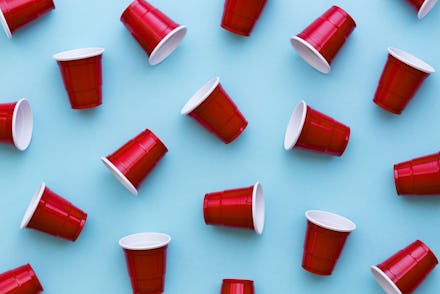Sober October, Dry January, and the myth of periodic sobriety

Sober October is in full swing. The more recent incarnation of the month-long sober challenge involves abstaining from alcohol for the entire month of October, often while fundraising for charity, according to Refinery 29. No worries if you missed the boat this month, though — there’s always Dry November or Dry January. Indeed, sober months have become a popular way to press the “reset” button on your body before or after going too hard over the holidays. But even if it’s a huge wellness trend, does periodic sobriety really benefit health?
The short answer: It depends on how much you’ve been drinking before you set the booze aside. And while studies suggest that cutting out alcohol for a month could improve health short-term, whether it does so long-term remains unclear.
If you drink only occasionally — say one or two drinks a month — going completely dry for a month probably won’t make much of a difference, Michael Sevilla, a family physician in Salem, Ohio, tells Mic. Chances are, if you don’t drink much, you probably already have a pretty healthy lifestyle. But if you drink heavily — one or two drinks a day — Sevilla advises checking in with your doctor, since going dry may lead to alcohol withdrawal, whose symptoms can range from rapid heartbeat and trouble sleeping, to vomiting and even seizures, per the Mayo Clinic.
If you drink heavily — one or two drinks a day — Sevilla advises checking in with your doctor, since going dry may lead to alcohol withdrawal.
On the other hand, if your alcohol use falls somewhere in the middle, “you’re not going to solve any of the long-term health issues, but there are definitely some short-term things that can be improved,” Sevilla says.
Since month-long sober challenges have only recently become a thing, there hasn’t been a ton of research on them yet, but Sevilla cites a 2018 study published in the British Medical Journal, which found that moderate to heavy drinkers who abstained from alcohol for a month had significant decreases in weight, blood pressure, insulin resistance (which could eventually turn into diabetes, according to Healthline), and blood levels of proteins linked to cancer. Sevilla says his patients also have lower blood pressure, and report sleeping and feeling better overall, after completing one-month sober challenges.
Whether taking a month-long break from alcohol has any health benefits months or years later is questionable, though. The 2018 British Medical Journal study didn’t include any long-term follow-up with participants.
Surveys of more than 800 British adults who participated in Dry January 2018 didn’t directly measure health outcomes, but respondents did report drinking less six months later, according to a statement from the University of Sussex. Before Dry January, they reported drinking 4.3 days per week on average, but in August, they reported drinking an average of only 3.3 days a week. They also reported consuming fewer units of alcohol per month. Even those who didn’t successfully complete Dry January showed similar, but smaller, shifts in their drinking patterns, psychology researcher Richard De Visser, who led the study, said in the University of Sussex statement.
De Visser also saw improvements in respondents’ mental health and overall wellbeing. Ninety-three percent reported feeling a sense of achievement, while 70% reported feeling healthier overall, and 71% reported sleeping better. Overall, the results are consistent with those of a 2016 study De Visser led.
“We wish we could go to Jiffy Lube for our bodies, but it just doesn’t work that way.”
But these are findings from only two relatively small studies, and they were based on people’s reports of their own behavior, which aren’t always reliable. Sevilla has seen mixed results in his own patients’ drinking habits after they finish sober challenges. “Some of them have been able to cut back [on alcohol] even for a few months,” he says, but “there are some who return back to the amount they were drinking before.”
Committing to a long-term lifestyle change will probably result in greater health improvements than simply swearing off booze for 30 days, says Timothy Fong, director of the UCLA Addiction Medicine Clinic. “We wish we could go to Jiffy Lube for our bodies, but it just doesn’t work that way.”
But while you may not experience long-term health benefits, if you stop drinking, even momentarily, “your body is going to start feeling better,” Fong says. If you want try a month-long sober challenge to at least feel better and potentially enjoy some short-term health benefits, Sevilla suggests letting a doctor, family member, or friend know beforehand, to not only hold you accountable but also monitor you for side effects or other issues.
You might consider taking a cue from one of his patients and keeping a journal to help hold yourself accountable and cope with the stress you may have normally alleviated with booze. After you hit the one-month mark, Sevilla recommends celebrating with loved ones, which might motivate you to continue abstaining from alcohol, or at least drink less.
Again, going sober for a month may not completely transform your health, but “every little bit helps,” Sevilla says. And you’ll have the opportunity to humblebrag in an IG caption under a picture of you holding a LaCroix.